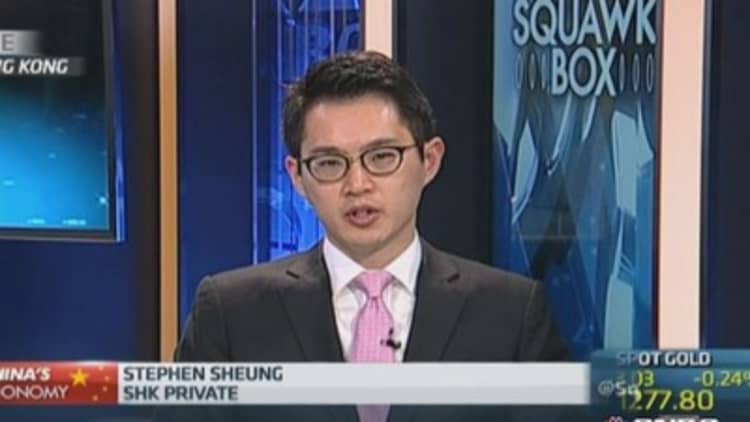Fears of a German economic slowdown were further heightened on Monday, as a key business survey fell short of analyst expectations.
The Ifo Business Climate index, which measures German business sentiment, showed signs of continued weakness in August, falling for the fourth consecutive month.
The index slipped to 106.3 in August, down from 108.0 in July and missing analyst expectations of 107.0.
"The German economy continues to lose steam," Hans-Werner Sinn, the president of the Ifo Institute, said in a statement, adding that this month's reading marked the index's lowest level since July 2013.
Ifo economist and deputy director Klaus Wohlrabe told Reuters that domestic consumption in the country remained solid, but warned that the Ukraine crisis was a "burdensome factor" for the country's economy.
Germany is the European country with the highest exposure to Russia, and Wohlrabe added that German firms with business ties to Russia were "more pessimistic".
Read MoreEuro zone unemployment stuck, recovery stalls
The weak number follows disappointing gross domestic product (GDP) data for the country earlier this month.

The figures showed that the economy in Germany - often referred to as Europe's growth engine - had contracted for the first time in over a year in the second quarter. It showed a marked slowdown from the January to March period, when the economy grew strongly.
Wohlrabe told Reuters that Ifo was now likely to reduce its GDP forecast for the country to 1.5 percent growth, down from the 2 percent predicted.
But Carsten Brzeski, senior economist at ING, said expectations for the German economy remain relatively high, amid hopes that there could be a rebound in the third quarter.
Read MoreItaly unexpectedly slides back into recession
"Admittedly, confidence indicators recently lost some of their predictive power. However, at least when it comes to Germany, this divergence of soft and hard indicators could possibly be explained by the winter weather and its impact on the construction sector as well as the unusual amount of bridge days in May," he said in a note.
"All in all, today's Ifo index illustrates that German business leaders are somewhat more down-to-earth than financial market participants. Both the latest PMI and the Ifo reading actually give hope that the disappointing second quarter performance will not morph into an unintended longer period of disappointment. At least not for now," he added.
—By CNBC's Jenny Cosgrave: Follow her on Twitter @jenny_cosgrave


